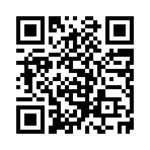Deliverance from Negative Influences
In Christian theology, deliverance refers to the spiritual process of freeing a person from the influence, control, or oppression of negative habits caused by spiritual entities, often referred to as demons. This concept is rooted in the belief that believers have been given authority in Jesus Christ to overcome evil.
Rather than focusing on the power of demons, deliverance ministry centers on the supreme power and authority of God to bring freedom and wholeness to those who are suffering.

This spiritual liberation is a multi-faceted process that involves several key components, often understood as a form of spiritual warfare. The goal is to restore a person’s spiritual freedom and align them with God’s authority, allowing them to live a life unhindered by these negative influences.
1. Recognizing Demonic Influence and Negative Influences
The first step in seeking deliverance is to recognize the presence of negative influences. This is not always a dramatic or overt manifestation, but can be subtle and persistent. According to this perspective, demonic “strongholds” can be identified through:
Negative thought patterns: Repetitive, destructive, or obsessive thoughts that are contrary to biblical truth.
Destructive behaviors: Addictions, self-harm, or other habitual actions that are harmful to oneself or others.
Persistent struggles with sin: An inability to break free from a particular sin, despite repeated attempts and genuine desire to change.
Yokes and Spiritual Ties: Many people believe they have spiritual yokes or ties to certain entities that hinder their progress in various aspects of life. These spiritual bonds can manifest as repeated failures in relationships, persistent struggles in their work or finances, and a general stagnation in their spiritual growth. Identifying these ties is a crucial part of recognizing the root cause of these patterns of failure.
It’s crucial to seek the guidance of the Holy Spirit to discern these areas of influence. This discernment prevents attributing psychological or physical issues to demonic activity, ensuring that the appropriate care is provided, whether spiritual, medical, or both.

2. Repentance and Renunciation
Once these negative influences have been recognized, the path to deliverance requires a firm and intentional response. This involves two key actions:
Confessing and Repenting: Repentance isn’t just an apology for a sin; it’s a fundamental change of heart and mind that leads to a turning away from that sin. Confessing specific sins to God is seen as a vital step in breaking the legal ground that a demonic force may have been using to maintain its influence.
Renouncing Demonic Influence: This is a conscious act of rejecting and breaking any allegiances, agreements, or ties—whether intentional or unintentional—to demonic forces. This is a verbal and willful declaration of one’s allegiance to God alone, severing any past connection to evil.

3. Seeking Spiritual Cleansing
After repentance and renunciation, the focus shifts to seeking a spiritual cleansing that re-establishes a person’s spiritual purity and protection. Two common practices are central to this stage:
Pleading the Blood of Jesus: In many Christian traditions, the “blood of Jesus” symbolizes the atoning sacrifice of Christ on the cross. Pleading the blood is a practice of verbally invoking its power to cleanse, purify, and protect a person from the defilement and influence of sin and demonic forces.
Receiving the Holy Spirit: The Holy Spirit is understood as the source of spiritual power and strength for believers. Seeking the “filling” or empowerment of the Holy Spirit is considered essential for spiritual strength and for overcoming demonic influence. The Spirit provides guidance, comfort, and the power to resist temptation.

4. Walking in Deliverance
Deliverance isn’t a one-time event, but the beginning of a new way of life. Maintaining spiritual freedom requires ongoing effort and vigilance. This involves:
Reinforcing Truth with Scripture: After being delivered, it’s vital to fill the mind with God’s Word. Meditating on scripture, especially verses that speak to the area of freedom gained, helps to reinforce God’s truth and counter the enemy’s attempts to regain access.
Maintaining Spiritual Discipline: This includes practices like regular prayer, reading the Bible, and resisting temptation. This vigilance is necessary to protect the new-found freedom and to prevent a spiritual void from being filled by a returning evil spirit.
5. The Importance of Support and Community
While personal conviction is central to deliverance, it’s often not a journey taken alone. The Christian community plays a significant role in this process:
Praying with Others: Seeking prayer and guidance from spiritual leaders, pastors, or trusted individuals is highly encouraged. This communal support provides strength, accountability, and the power of corporate prayer.
Fasting and Prayer: Fasting is a spiritual discipline often used in conjunction with prayer to intensify spiritual focus and warfare. It’s a powerful tool believed to help believers gain breakthroughs in difficult spiritual battles.

Important Considerations
Deliverance ministry is founded on several core beliefs:
Spiritual Warfare: It’s viewed as an active engagement in a spiritual battle against demonic forces, where believers use the tools and authority given to them by God.
Authority in Christ: The power to perform deliverance doesn’t come from the individual but from the authority believers have been given in Jesus Christ to cast out evil.
Focus on God’s Power: The central focus of deliverance is always on God’s sovereignty, power, and love, not on the power or influence of the demons. The ultimate goal is to bring glory to God by freeing His people.
In summary, deliverance from negative influences, from a Christian perspective, is a process of spiritual liberation that begins with recognizing demonic influence and culminates in a life of sustained freedom through repentance, spiritual cleansing, and ongoing spiritual discipline. It’s a journey rooted in the authority of Jesus Christ and the empowering presence of the Holy Spirit.
Here is a powerful, Spirit-filled Prayer for Deliverance from Negative Influences — a plea for Jesus to cleanse the atmosphere around us, renew our minds, and fill our hearts with His holy presence and peace.
Lord Jesus Christ, our Shield and Deliverer,
We come before You seeking Your holy protection and strength.
You are the Light that no darkness can overcome,
the Truth that silences every lie,
and the Love that casts out all fear.
Deliver us, Lord, from every negative influence —
from voices that speak deceit,
from spirits that bring confusion, anger, or despair,
from thoughts that lead us away from Your peace.
Remove from us the toxic words, the harmful patterns,
and the environments that cloud our faith and weaken our joy.
Guard our hearts from envy and pride,
our minds from doubt and bitterness,
our souls from every force that does not come from You.
Where the enemy tries to sow division, plant unity;
where he tries to spread fear, release courage;
where he whispers lies, fill us with Your truth.
Holy Spirit, surround us with Your fire of protection.
Let Your presence cleanse our homes, our relationships, our hearts.
Cut every chain of manipulation, every shadow of deception.
Break the power of negative energy,
and fill every empty space with Your light and love.
Teach us to walk with discernment and wisdom.
Let us not be swayed by the world’s temptations or voices of doubt,
but anchored in Your Word, strong in Your promises.
Let our minds be renewed daily by Your truth,
and our hearts overflow with Your peace.
Jesus, we claim Your authority over all darkness.
We declare that no weapon formed against us shall prosper,
and that every spirit of negativity must flee at Your name.
Let Your cross stand as a banner over us —
a sign that we belong to You,
and no evil can stand where You reign.
Fill us, Lord, with love, joy, and soundness of mind.
Let the fragrance of Your presence change the very air we breathe.
May Your Word be the song in our hearts,
and Your grace the light that guides our path.
We thank You, Lord, for Your deliverance.
We rest in the assurance that You are greater than any force against us.
In Your holy name, Jesus Christ —
our Savior, our Protector, our Peace —
Amen.

Bible Study: Finding Freedom in Christ
Opening Prayer:
Heavenly Father, we come before you today with open hearts and minds. We ask for the guidance of your Holy Spirit as we study your Word and learn about the freedom and authority we have in Christ. Open our eyes to any area where we need your liberating power. Give us courage to face the truth and faith to believe in your deliverance. In Jesus’ name, Amen.
Introduction:
The Christian life is a journey from bondage to freedom, from darkness to light. While we are saved and sealed by the Holy Spirit, we still live in a fallen world and can be affected by negative spiritual influences that hinder our walk with God. This study explores the biblical process of deliverance—not as a sensational event, but as a practical and spiritual journey toward the wholeness and freedom that Christ purchased for us on the cross.
Key Verse:
“So if the Son sets you free, you will be free indeed.”
– John 8:36 (NIV)
Icebreaker: Have you ever felt stuck in a negative pattern of thinking or behavior that you knew was wrong but felt powerless to change? (You don’t need to share details).
Read: 2 Corinthians 10:3-5, John 10:10
According to our text, the first step is recognition. This isn’t about fear or seeing demons everywhere; it’s about honest spiritual assessment.
Discussion Questions:
-
What are the four indicators of a potential “stronghold” mentioned in the content?
-
Negative thought patterns, Destructive behaviors, Persistent struggles with sin, Yokes and spiritual ties.
-
-
Read 2 Corinthians 10:3-5. What does it mean to “take captive every thought to make it obedient to Christ”? How does this relate to recognizing negative influences?
-
Read John 10:10. Contrast the two purposes described in this verse. How have you seen the thief’s work versus Jesus’s work play out in your life or the world?
-
Why is it crucial, as the text states, to seek the Holy Spirit’s guidance in discernment rather than attributing every struggle to the demonic?
Application:
This week, prayerfully ask the Holy Spirit to reveal any area of your life where you are not experiencing the “abundant life” Jesus promises. It could be a recurring sin, a destructive habit, or a pattern of negative thinking. Journal about what comes to mind.
Icebreaker: What is the difference between saying “I’m sorry” and truly repenting?
Read: Acts 3:19, 2 Corinthians 7:10, Acts 19:18-19
Once we recognize an area of bondage, our response is critical. Godly repentance is the key that unlocks the door to freedom.
Discussion Questions:
-
The text differentiates between confession and repentance. In your own words, what is the difference?
-
Read Acts 3:19. What two actions are we called to do? What is the result?
-
Why do you think verbalizing our repentance and renunciation (say it out loud in prayer) is so powerful? (See Romans 10:10).
-
Read Acts 19:18-19. What drastic action did the new believers take? What does this teach us about the seriousness of renouncing ties to things that oppose God?
Application:
Identify one specific thing the Holy Spirit highlighted from last week. Find a private space and:
-
Confess it to God specifically.
-
Repent of it—express your desire to turn away from it and toward God.
-
Renounce it—verbally break any agreement or tie you have with that sin or influence. (e.g., “In the name of Jesus, I renounce the spirit of fear and I break all agreement with it.”).
Icebreaker: What does the phrase “The blood of Jesus” mean to you personally?
Read: 1 John 1:7, Hebrews 9:14, Ephesians 5:18
After emptying ourselves through repentance, we must be filled with God’s purity and power. This is about receiving what Christ has already provided.
Discussion Questions:
-
Read 1 John 1:7. What is the continuous action and continuous result of walking in the light?
-
The text mentions “pleading the blood of Jesus.” This is not a magic phrase but a declaration of faith in what the blood represents. Based on Hebrews 9:14, what does the blood of Christ accomplish for us?
-
Read Ephesians 5:18. Why is being “filled with the Spirit” the essential counterpart to being cleansed from sin? How does the Spirit help us maintain our freedom?
Application:
Make these practices a part of your daily prayer life:
-
Thank Jesus for the cleansing power of His blood. (“Lord, I thank you that your blood cleanses me from all sin.”).
-
Ask to be filled with the Holy Spirit afresh each day for power, guidance, and strength.
Icebreaker: What’s one practical habit that helps you stay spiritually healthy?
Read: John 8:31-32, Ephesians 6:10-11, Philippians 4:8
Deliverance is not a one-time event but the start of a new way of living. Freedom must be maintained through discipline and truth.
Discussion Questions:
-
Read John 8:31-32. What two things are required to “know the truth” that sets us free?
-
The text says we must reinforce truth with Scripture. Read Philippians 4:8. How can intentionally focusing our minds on these things guard us against negative thought patterns?
-
Read Ephesians 6:10-11. What is our responsibility in maintaining our freedom? What does it mean to “stand your ground” after you have been set free?
Application:
Choose one verse that speaks directly to your area of struggle (e.g., for fear: 2 Timothy 1:7). Write it on a card and place it where you will see it daily. Commit to memorizing it.
Icebreaker: Who is a trusted Christian in your life you feel comfortable going to for prayer?
Read: James 5:16, Matthew 18:19-20, Ecclesiastes 4:9-12
We are not meant to fight our battles alone. God has given us the body of Christ for support, strength, and accountability.
Discussion Questions:
-
Read James 5:16. What are the instructions and the promise in this verse?
-
Why is it often harder to seek prayer from others than to try and handle a problem ourselves? What does pride or fear keep us from receiving?
-
The text mentions fasting and prayer. Why do you think combining these disciplines can lead to spiritual breakthrough? (See Matthew 17:21 KJV/NKJV).
-
How can we create a church culture where people feel safe to seek help for spiritual struggles without fear of judgment?
Application:
Identify one person this week (a friend, small group leader, or pastor) and share a general prayer request with them. If you feel led, be specific and ask them to pray in agreement with you for freedom.
Closing Prayer:
Lord Jesus, we thank you that you are our Deliverer. We claim the freedom you won for us on the cross. We take authority over every negative influence in our lives in your mighty name. Holy Spirit, guide us into all truth and empower us to live a life of freedom for your glory. Help us to rely on you and our community of believers as we walk this out daily. Amen.





1 Comment
Comments are closed.